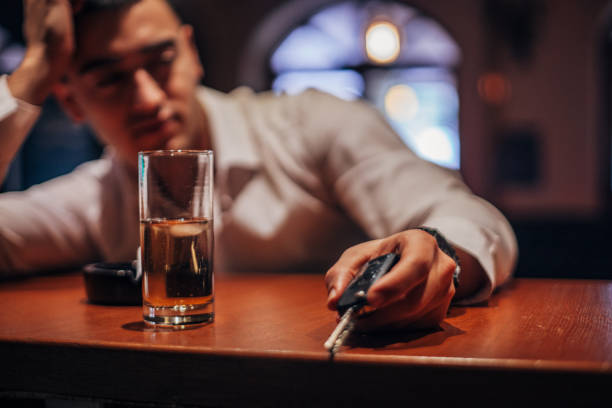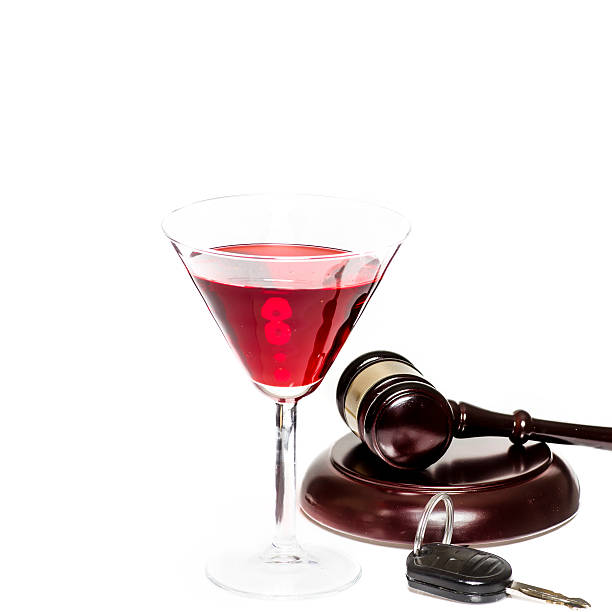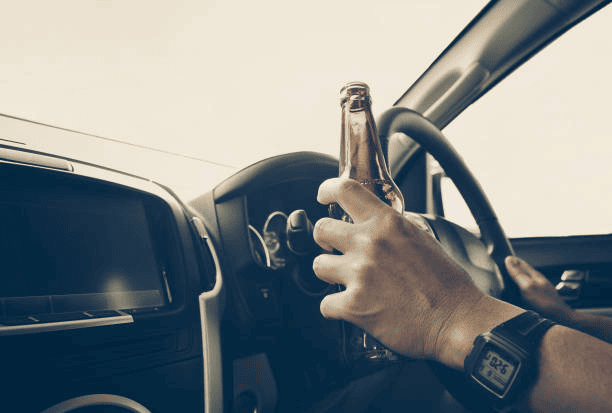High range drink driving is the operation of a motor vehicle with a Blood Alcohol Concentration (BAC) level above the legal limit. In NSW, the legal BAC limit for most drivers is 0.05%. However, for those holding a learner’s or probationary licence, as well as professional drivers, the limit is even lower, at 0.00%.
High range drink driving comes into play when a driver is found to have a BAC exceeding 0.15%. This is a serious criminal offence in Australia since it can cause car accidents on the road. Being charged with drunk driving in Australia can have severe consequences. When caught, authorities can:
- Issue an immediate licence suspension and confiscate the driver’s licence on the spot
- Order the offender to appear in court and face a potential criminal conviction
- Impose penalties for drunk driving such as heavy fines and imprisonment
The legal system aims to discourage such behaviour for the safety of all road users. Therefore, we have prepared this article about drunk driving, its legal implications and its relevance in traffic law matters.
High Range Drink Driving PCA Offence
A high range Prescribed Concentration of Alcohol (PCA) offence is a serious offence. It occurs when a driver is found to have a blood alcohol concentration (BAC) of 0.15 or higher. This is the highest level of BAC that is legally allowed for drivers in New South Wales (NSW).
Penalties
In NSW, the penalties for high range PCA offences are severe. They can include:
- A fine of up to $3,300 for a first offence, and up to $5,500 for a second or subsequent offence.
- A maximum prison sentence of up to 18 months for a first offence, and up to 2 years for a second or subsequent offence.
- A licence disqualification period of at least 12 months for a first offence, and at least 2 years for a second or subsequent offence.
- An automatic licence disqualification of 3 years for a first offence, and 5 years for a second or subsequent offence.
- Immediate licence suspension.
- An alcohol interlock order. This is a court order that prohibits a person from driving unless they have an interlock device installed in their car. An interlock device is a breathalyser that you must blow into before starting your car. If the device detects alcohol in your breath, your car will not start.
There are also a number of other factors that can affect the outcome of a high range drink driving charge or PCA offence. These factors include the:
- Driver’s age
- Driver’s driving history; and
- The circumstances of the offence.

Helpful Reminders
Avoiding drunk driving is crucial for the safety of yourself and others on the road. Fortunately, there are several proactive measures you can take to steer clear of this dangerous behaviour. Let’s delve deeper into these preventive steps:
1. Never Drink and Drive
The most effective way to avoid high range drink driving is simple: Never get behind the wheel if you’ve been drinking. Even small amounts of alcohol can impair your ability to drive safely. It’s essential to recognise that alcohol affects individuals differently. So, even if you feel confident to drive, your reaction times and decision-making skills may still be compromised.
2. Plan Ahead and Secure a Safe Ride Home
If you’re planning to consume alcohol, always plan ahead and arrange a safe way to get home. This could involve having a designated driver among your group of friends or using public transportation. Nowadays, ride-sharing apps are widely available, making it easier than ever to secure a safe ride home at any time of day or night.
Let’s use an example. For instance, you’re out with a group of friends or attending a social event where alcohol will be served. If this is the case, make sure to have a designated driver appointed before the night begins. This person should commit to staying sober and ensuring everyone gets home safely.
3. Know Your Limits
Understanding your alcohol tolerance is crucial to prevent high range drink driving. Different factors can influence how alcohol affects you, including your weight, gender, and metabolism. It’s essential to recognise when you’ve had enough and to resist peer pressure to keep drinking. Remember, there’s no shame in declining another drink if you know it could impair your ability to drive safely.
What if You’re Charged With High Range Drink Driving?
If you find yourself charged with high range drink driving in Australia, it is essential to approach the situation with the utmost seriousness and follow these steps:
1. Seek Legal Advice: As soon as possible, consult with an experienced traffic lawyer who can guide you through the legal process and help build a strong defence.
2. Understand the Charges: Familiarise yourself with the specific charges against you, the potential penalties, and the court procedures.
3. Gather Evidence: Collect any evidence that might support your case, such as witness statements, CCTV footage, or any medical conditions that could have affected the accuracy of the breathalyser test.
4. Appear in Court: Attend all court hearings as required, and cooperate with your traffic offence lawyer to present your case effectively.
5. Express Remorse: Acknowledge your mistake and express genuine remorse for your actions. This may have a positive impact during sentencing.
6. Comply with Penalties: If convicted, comply with all penalties imposed, such as fines, licence disqualification, or community service.
7. Learn from the Experience: Use this incident as an opportunity to learn and grow. Participate in alcohol education programs or counselling to understand the risks associated with high range drink driving.

Importance of Seeking Legal Advice About Drink Driving Offences
As discussed in this article, drunk driving is a serious traffic offence. If you have been charged with high range drink driving, it is important to seek legal help as soon as possible. The penalties for this offence are severe, and you could face a fine, imprisonment, and licence disqualification.
JB Solicitors are experienced lawyers who can help you understand your legal options and defend your case. We will work hard to get the best possible outcome for you, and keep you informed throughout the process. There are many instances where lawyers can help with drunk driving cases. Here are a few examples:
- Challenging the accuracy of the breathalyser test. If you believe that the breathalyser test was not accurate, a lawyer can help you challenge the results. They can review the test procedures and the equipment used to see if there were any errors.
- Negotiating a plea deal. If you are facing criminal charges for drunk driving, a lawyer can negotiate a plea deal with the prosecutor. This could result in a reduced charge or a lesser sentence.
- Defending you in court. If you go to trial, a lawyer can defend you against the charges. They will cross-examine the witnesses, your criminal record, present evidence, and argue on your behalf.
- Helping you with the administrative penalties. In addition to criminal charges, you may also face administrative penalties for drunk driving. These could include a licence suspension, an interlock order, or a fine. A lawyer can help you understand these penalties and fight them if necessary.
Message us today for all your traffic or drink driving offence matters.
